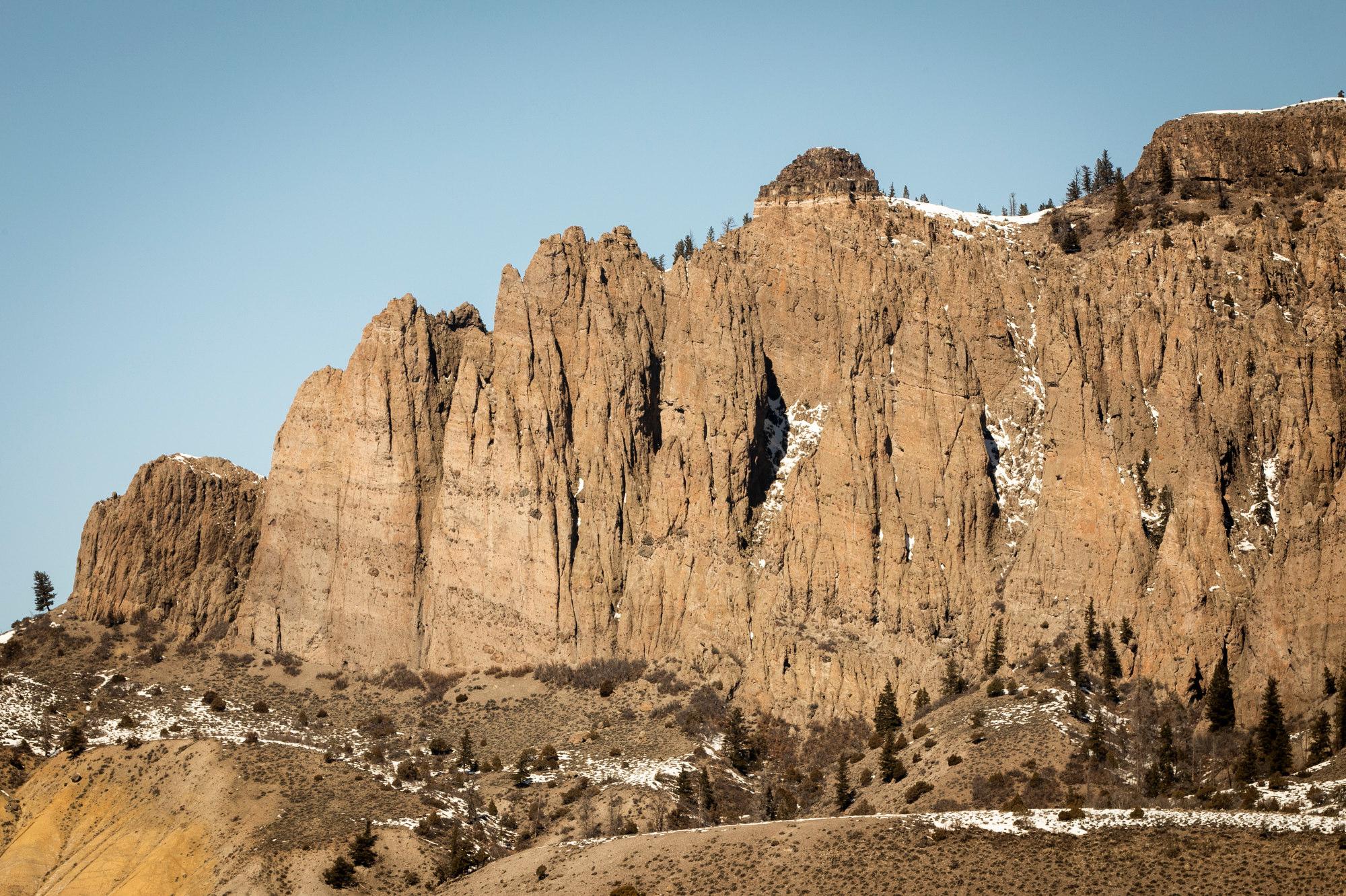
Will a third time be the charm for two Colorado public lands bills?
The bills’ sponsors and supporters hope so. Congress took a major step forward on both Friday, despite opposition from Colorado Republicans.
The U.S. House of Representatives passed the massive package known as the Protecting America’s Wilderness and Public Lands Act in a 227-200 vote. It includes two Colorado bills — the Colorado Outdoor Recreation Economy Act (CORE), introduced by Democratic Rep. Joe Neguse, and the Colorado Wilderness Act, introduced by Democratic Rep. Diana DeGette.
The CORE Act would protect about 400,000 acres in the state through new wilderness, recreation and conservation designations. It would make Camp Hale, where the Tenth Mountain Division trained during World War Two, the first National Historic Landscape. The four elements in the bill are the result of over ten years of local collaboration.
The wilderness bill, which DeGette has tried to pass for the last two decades, designates 36 areas across the state — more than 660,000 acres — as wilderness. Many are currently managed as wilderness, but the act would make those protections permanent.
“It’s been vetted, it’s been revetted, it’s been revetted again,” DeGette said of her bill from the House floor. “It has strong reasons for designation as public lands and it has strong local support.”
Like the last Congress, the vote within Colorado’s delegation split along party lines, with Democrats supporting the measure and Republicans voting against it. This time, it was freshman Rep. Lauren Boebert voting no for the 3rd congressional district, not Scott Tipton.
Most of the land covered by the Colorado measures are located in Boebert’s district. She has described the CORE Act as a “Democrat land grab,” criticizing its impact on wildfire prevention and the withdrawal of land from mineral production.
“Wilderness designations harm active management and wildfire activities,” Boebert said Friday. “I hope that when members visit my district on horseback they are telling people that this land will soon burn, because if we do not actively manage our forests, Mother Nature will continue to manage it for us.”
Much of Boebert’s objection focused on the wilderness designations, which offer the strictest protections, and she argued Democratic legislators did not listen to concerns from local officials. County commissioners in Montezuma, Dolores and Garfield counties have voiced their opposition to the bill, as has the Grand Junction Chamber of Commerce.
DeGette told CPR News, “These are public lands that belong to all of us… the land in my bill has been protected as wilderness study areas for almost 40 years.” And while she said she will try to work with Boebert in the future on public lands efforts, “I don’t think one person should be able to decide what happens with these very important public lands that have been managed as wilderness for so long.”
Boebert said voters selected her as their representative, not DeGette or Neguse. As such, she said, it should be her voice that has the most sway over what lands in her district are included. Tipton used the same argument to object to the bills in the last Congress.
CPR reached out to Boebert's office to find out her specific objections to the CORE Act, but received no reply. All counties that are affected by that bill have expressed support for passage.
Boebert offered over a dozen amendments to the bill, but only four that she co-sponsored with others were included for debate. They ranged from exempting the 3rd congressional district from the bill, to obtaining local counties’ approval before lands can be withdrawn from mineral leasing.
Colorado Springs Rep. Doug Lamborn, also a Republican, offered up an amendment to ensure the bill would not affect electric power transmission right of ways.
Neither representative’s amendments were accepted.
“The amendments are not a good-faith effort to attempt to improve the bill,” Neguse said. “They simply seek to outright reverse or fundamentally weaken the various designations.”
All the bills in the PAW Act, including the two for Colorado, went through the committee process and were passed by the House twice in the last Congress, but never made it through the then Republican-controlled Senate.
Advocating for the CORE Act Friday, Neguse quoted President Theodore Roosevelt after his first visit to the Grand Canyon: “You cannot improve on it. But what you can do is to keep it for your children, your children’s children, and all who come after you.”
Colorado Democratic Sens. Michael Bennet and John Hickenlooper, sponsors of the CORE Act, applauded passage of the bill.
“The CORE Act represents more than a decade of collaboration by Coloradans across the state to protect and strengthen our outdoor recreation economy and our public lands,” Hickenlooper said in a statement. “We’re eager to finish the job in the Senate.”
Local conservation groups also lauded the approval.
“In passing the CORE and Colorado Wilderness Acts, the U.S. House moved us one step closer to protecting some of Colorado’s most popular, iconic, and historic places,” said Kelly Nordini, executive director of Conservation Colorado.
The Biden Administration issued its support earlier in the week, saying the package “puts in place protections for some of our nation’s most iconic natural and cultural resources and safeguards recreational opportunities for the benefit of current and future generations, while creating jobs and investing in the recreation economy.”
CPR’s coverage of Colorado’s congressional delegation focuses on accountability and on providing information constituents need to live their lives. Read more about our priorities here.









